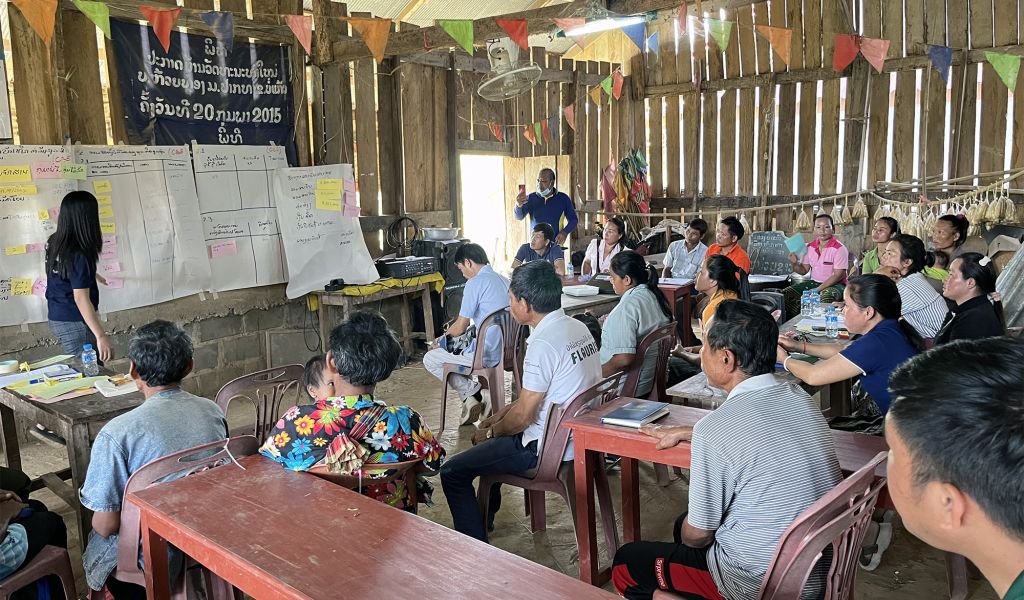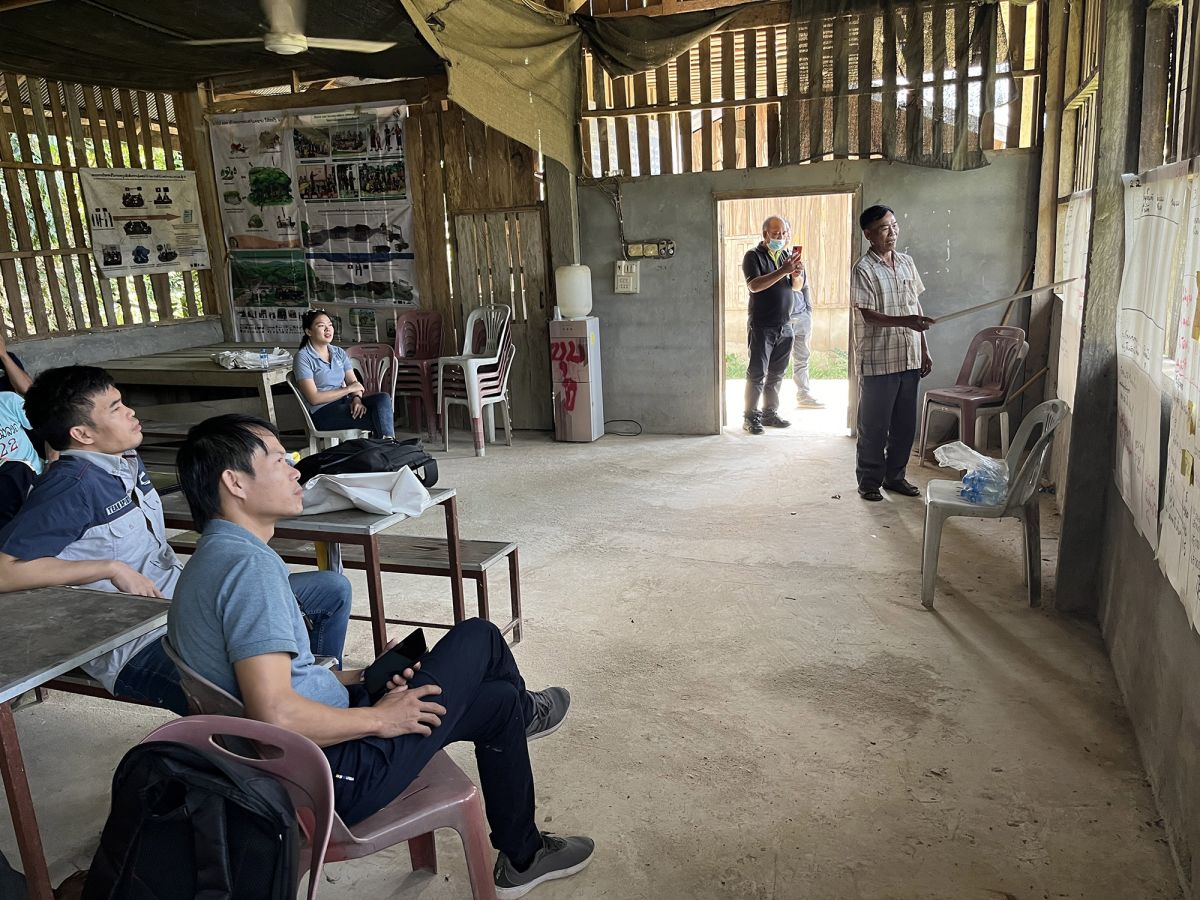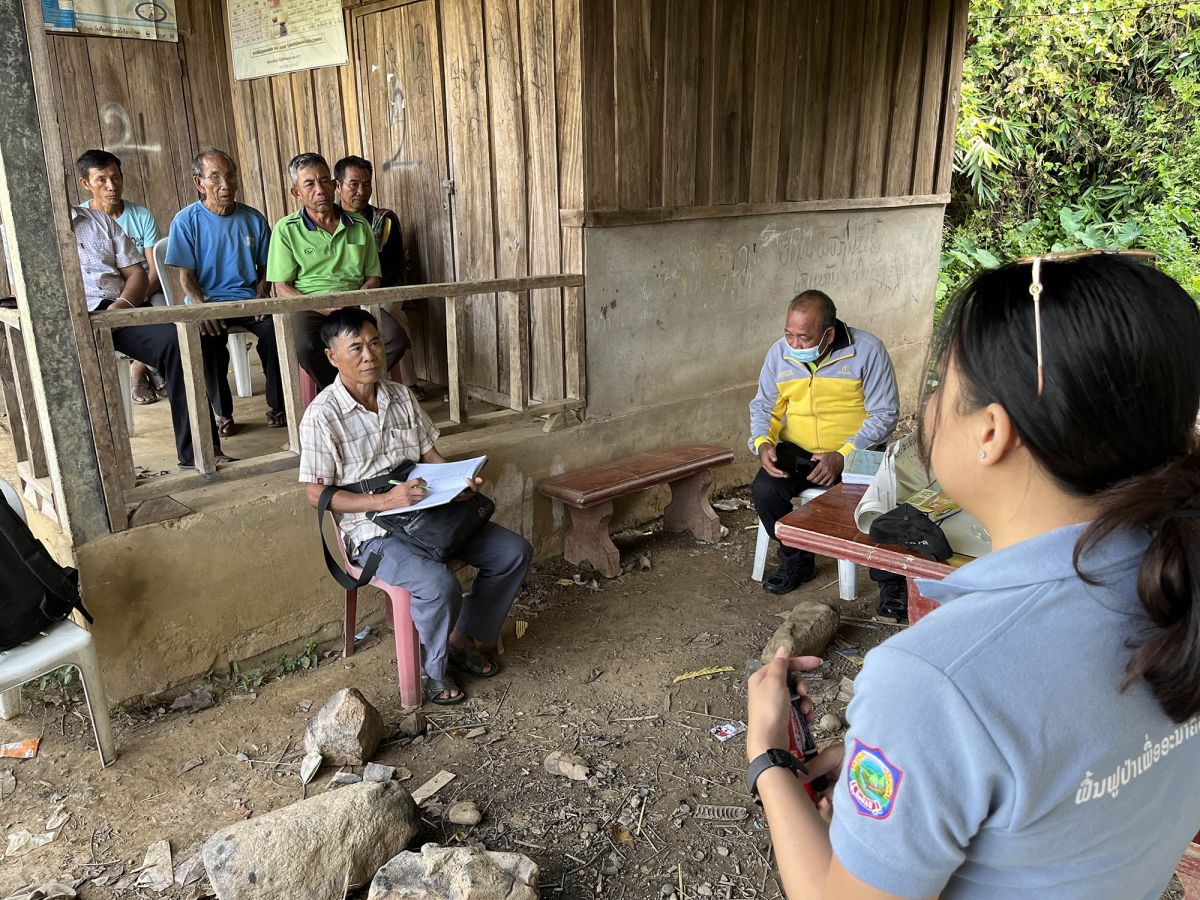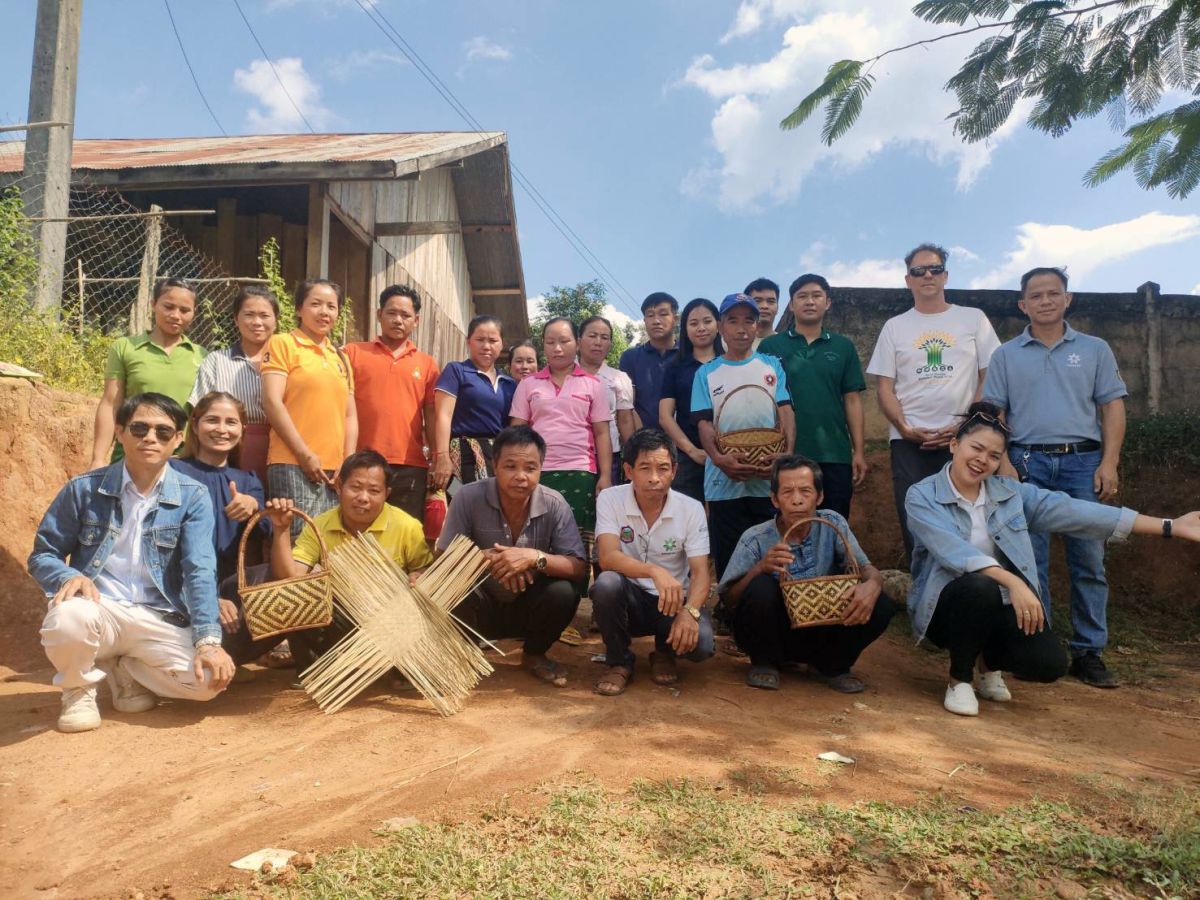Livelihood economics of forest communities in Lao PDR’s Bokeo province

In the lush expanses of Bokeo Province in Lao PDR, communities are connected to the forest. For them, the forest is a vital lifeline, providing resources crucial to their survival. Their primary occupation may be farming, but the forest serves as their supermarket, pharmacy and bank. These community-managed forests, known as "village forests," offer socio-economic, cultural and environmental services often overlooked in traditional economic assessments.
Community members gather a variety of forest products daily and seasonally, from bamboo shoots and canes to rattan shoots, insects, mushrooms and forest vegetables. These products are not only consumed but also traded, contributing to the local economy.
However, the economic value of these forest products often goes unrecorded. The community members, who are also farmers, rarely track their earnings from trading these products or their staple crops like rice and rubber.
At RECOFTC, we are committed to supporting communities in the Asia-Pacific region in managing their forest landscapes equitably and sustainably. With the backing of the USDA Forest Service, we are collaborating with provincial and district agriculture and forest offices to assist communities in establishing village forests and developing village forest management plans in the provinces of Bokeo and Xayaboury in Lao PDR.
During a recent field mission, our team at RECOFTC, along with local partners, extended training on simple record keeping to two communities comprising Lao Loum and Khmu ethnic groups. We collected financial information on key products harvested from village forests and processed for selling.

The results showed that community members collect forest products for self-consumption, sell the surplus, engage in value-added processing activities as a group and trade in the market.
Here are some insights from our interaction with village forest users:
- In Houaythong village, members collect half a million crickets per year from their village forests at a value of 445,500,000 Kips (USD 22,275). Local demand for crickets is high as they are served in restaurants. Some enterprising members started a cricket nursery to increase production.
- Rubber is the most important cash crop, providing Namyonemai village with an annual estimated income of 6,640,500,000 Kips (USD 332,025).
- Processing bamboo stems to create handicrafts allows disadvantaged community members (elderly, disabled) to diversify their livelihood activities and contribute to household income. A bamboo handicraft group in Namyonemai earns approximately 159,725,000 Kips (USD 79,863) annually.
- In Namyonemai village, the revised village forest management plan restricts communities from harvesting sugar palm (Mak Tao) shoots, which kills the palms. Village forest user groups have agreed to ban all unsustainable practices in their village forest management plan.

The mission to train forest users in simple record-keeping techniques contributed to a lively discussion and clarified the linkages with sustainable forest management. The plan is to continue collecting information in fifteen villages, teaching them record-keeping practices and enhancing their financial literacy.
This initiative is not just about numbers and ledgers; it is about empowering communities to understand and leverage the economic value of their forests, ensuring their survival and the survival of the forests they depend on.

The interconnectedness between the village forest and the livelihoods of the communities plays a crucial role in promoting sustainable practices, including effective forest fire management, aimed at preventing the degradation of their forests, ultimately safeguarding their well-being.
These insights underscore the importance of sustainable forest management in maintaining the livelihoods of these communities and preserving the rich biodiversity of their forests. At RECOFTC, we are committed to supporting these communities in their efforts to manage their forests sustainably and improve their livelihoods.

###
Chay Senkhammoungkhoun is the project coordinator for the CBFiM project in Lao PDR
Koulavone Phanthavongsa is the project assistant for the village forest management plan project in Lao PDR
Martin Greijmans is senior program officer for private sector engagement and enterprising communities at RECOFTC.
This story/publication was produced through the Community-based Fire Management (CBFiM) in Asia project, made possible through a five-year cooperative agreement between the USDA Forest Service International Programs and RECOFTC. The project receives financial support from the United States Indo-Pacific Command (USINDOPACOM) of the Department of Defense, along with funding from USAID and the USDA Forest Service International Programs.
For more information, please visit www.recoftc.org/projects/cbfim
RECOFTC’s work is made possible with the support of the Swiss Agency for Development and Cooperation and the Swedish International Development Cooperation Agency.

